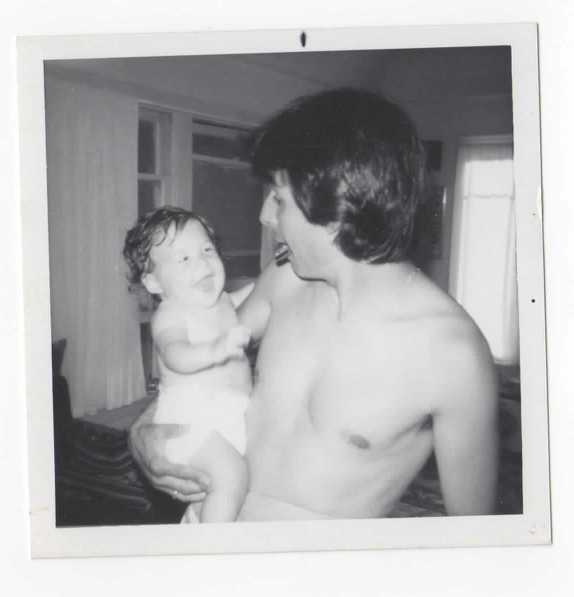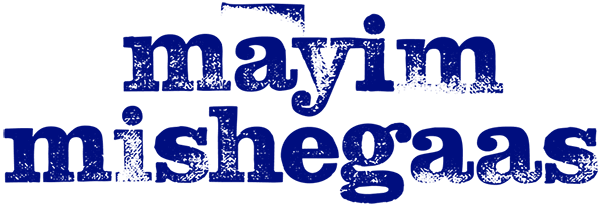
Music, sweet music. I wish I could caress, caress, caress.
Thus said Jimi Hendrix. When I first heard this lyric in junior high, I was certain that I had found the quote that explained music for me for all time.
Jimi has not let me down, and it’s been almost 30 years.
I was raised with music in my ears. My mother’s father was a lay chazzan (cantor), and he had a pure and rich singing voice that he passed on to my mother, and she passed her singing on to me. She wrote me songs; she sang them to me. Although my mother is a shy singer, her voice is still soothing to me. Her singing voice can still put me to sleep in a heartbeat.
My father was the most musical untrained musician I’ve ever come across. He had a terrific ear, could improvise on piano for hours and it always sounded perfect. He constantly had music playing in our home, and he graded papers late into the night, blasting Dylan and the Stones and early ’60s folk music so loud you could hear it even through the gigantic headphones he always wore.
So many nights of my life, I’d holler at him to stop the incessant tapping of his foot to the music on his headphones; finally, I’d have to get out of bed because the music was turned up so loud he couldn’t hear me hollering.
When I couldn’t sleep, my dad would lay on the hardwood floors of my room and sing to me until I fell asleep. Dylan, mostly, but as I got older, the Beatles, and folk songs and silly songs and sad songs. Sometimes he’d bring in a boom box and put in one of the mixes he would make, and we would analyze the lyrics together until I fell asleep.
My dad and I took five consecutive road trips together in my late teen years. We were armed with trail mix and flannel shirts and mix tapes. We sang to bootleg Dylan and John Prine and solo Keith Richards—yeah, he had a solo career—and we loved our music. My dad would tap his ringed finger on the hard plastic stick shift of our 1975 Datsun, drumming along to the music and singing loud.
We couldn’t get enough of music. My dad had a soundtrack for every year of his life. I could tell you what songs he loved most for most of my childhood without even trying hard.
When my father’s body began to fail him, he lost the ability to play music as he went about life. I am ashamed to say, because we were so caught up with doctors’ appointments and second opinions and third opinions and everyone’s opinions, by our outrage and his denial and our collective rage, I didn’t even notice it at first.
I am grateful to report that God gave me the wherewithal to realize it before it was too late. The final months of my father’s blessed time on this earth were made of music. Him and me, at his bed, listening to the 21st-century equivalent of mixtapes. iTunes has a chronological record of everything I downloaded for us, a record of the musical train of thought we rode together during his last months.
And we rode that train far. We laughed together. We cried together. I sang for him some days until my voice was breaking. We listened to the new Bob Dylan bootleg together for the first time. I videotaped him listening. His voice could not sing anymore, but he smiled. We smiled. I found us songs we hadn’t sang in years, and we just kept remembering and remembering and everything we remembered I don’t ever want to forget.
I have not listened to music since my father died. For a full year, I will not listen to music. This is part of the Jewish tradition, to abstain during a year of mourning from things that are typically associated with joy. My tradition understands that joy, during a year of mourning, is far away.
Sure, I have heard music. But I have not really listened. For the first month after his burial, I did not even turn on the radio for my boys in the car. And they knew why. And it was okay. But after that first month, they got annoyed with talk radio. They have learned to enjoy some of the comedy stations on satellite, but that only goes so far on a long car ride.
So I let them listen in the back speakers. I don’t sing along. And I don’t change the station unless they want me to; meaning: I have no opinion on the music playing. If I hear music in a store, I don’t groove along or sing along. It’s kind of like a religious friend of mine explained to me about not staring at women who you find attractive as a religious practice: you can look, but you stop yourself before you gaze or fantasize. It’s like that with me and music. I hear it, but I don’t allow myself to get involved with it.
I miss singing. My voice is unfamiliar to me in my grief. I sometimes feel like singing but then I realize I just don’t have it in me. Grief has taken my song.
People ask me why Jews have to punish themselves and make suffering where there isn’t any. Or why I can’t do things that bring me joy at this time to try and alleviate it. I suppose you could look at it that way.
But the way I see it, grief has washed over me. It has knocked me down like a powerful and unpredictable wave. And like waves in the ocean, when I think I can stand up again in the water, another wave comes out of nowhere and knocks me flat on my butt again, sometimes deeper and more violently than I expected.
I sometimes feel like singing but then I realize I just don’t have it in me. Grief has taken my song.
So I’m going to stay in the shallow waters, sitting. Gazing out at the waves and staying where their aggressive beauty can’t knock me over. Because I’m already down and I won’t be getting up for some time.
But I will sing again. I will sing the songs my father sang to me. I will sing the songs I sang to him.
The last time I sang was during the period of shiva (a seven-day period of mourning), when friends and family sang some of the songs I sang to my father in his final weeks. My mentor, Shep, graciously volunteered to create song sheets containing the songs I considered to be the most critical in my life with my dad. I am indebted to him for this act.
It was strange to hear all of those voices singing the things I was used to singing alone. But now I understand why: it didn’t sound like the way I sang it to my dad because he was gone. I will never sing those songs again the way I sang them to him. Now I was being buoyed and lovingly supported by my community who didn’t sing collectively as well as I did alone. The inflections were off, the harmonies muddled. I had ways to bend notes that a group of 20 people couldn’t musically convey together. I didn’t want them singing my songs. But I knew they had to. And I am forever indebted to them for their voices and their support.
And so it is that I will spend this year song-less, without my music, and without my muse. My father left me without a song in my heart, but he left me a musical legacy in my soul.
I will reclaim it for him just as soon as I stand up again. And when I stand, I will not be bowled over anymore, for I will have walked through the valley of the shadow of death, and I will fear no evil. My music will be my shield, and my father will be my muse once again.
This is part of an ongoing series by Mayim Bialik chronicling her journey through the year of mourning her father’s death. To read other articles in this series, click here.




 Read More From Mayim
Read More From Mayim
Grok Nation Comment Policy
We welcome thoughtful, grokky comments—keep your negativity and spam to yourself. Please read our Comment Policy before commenting.